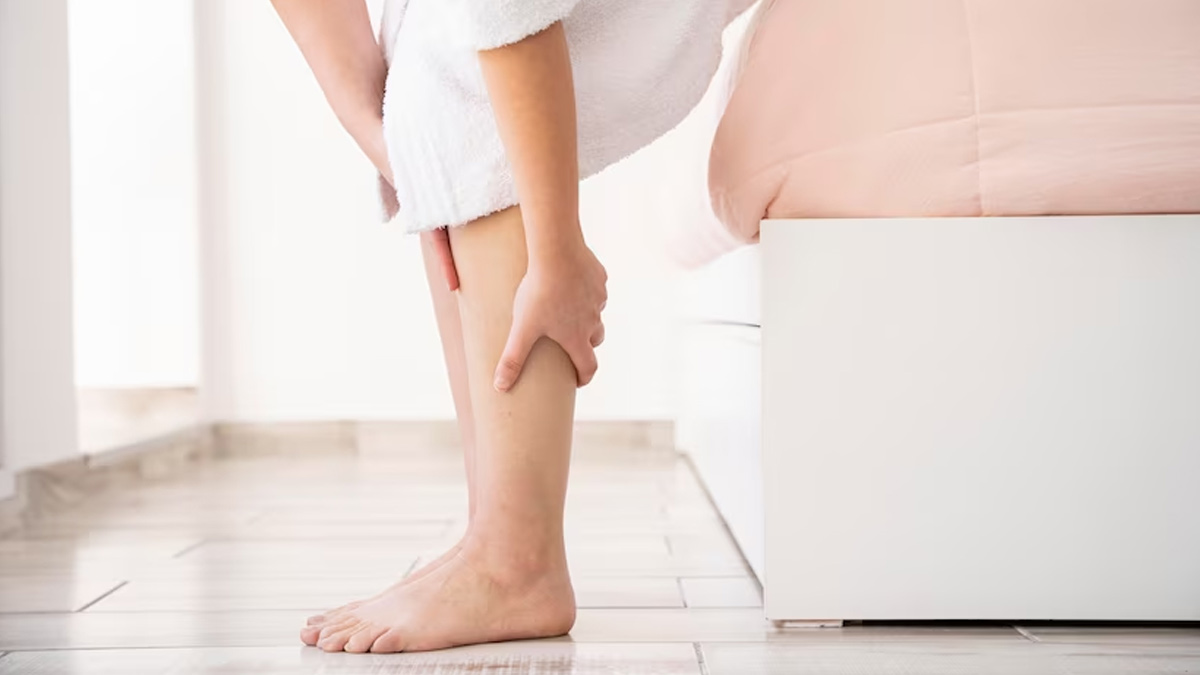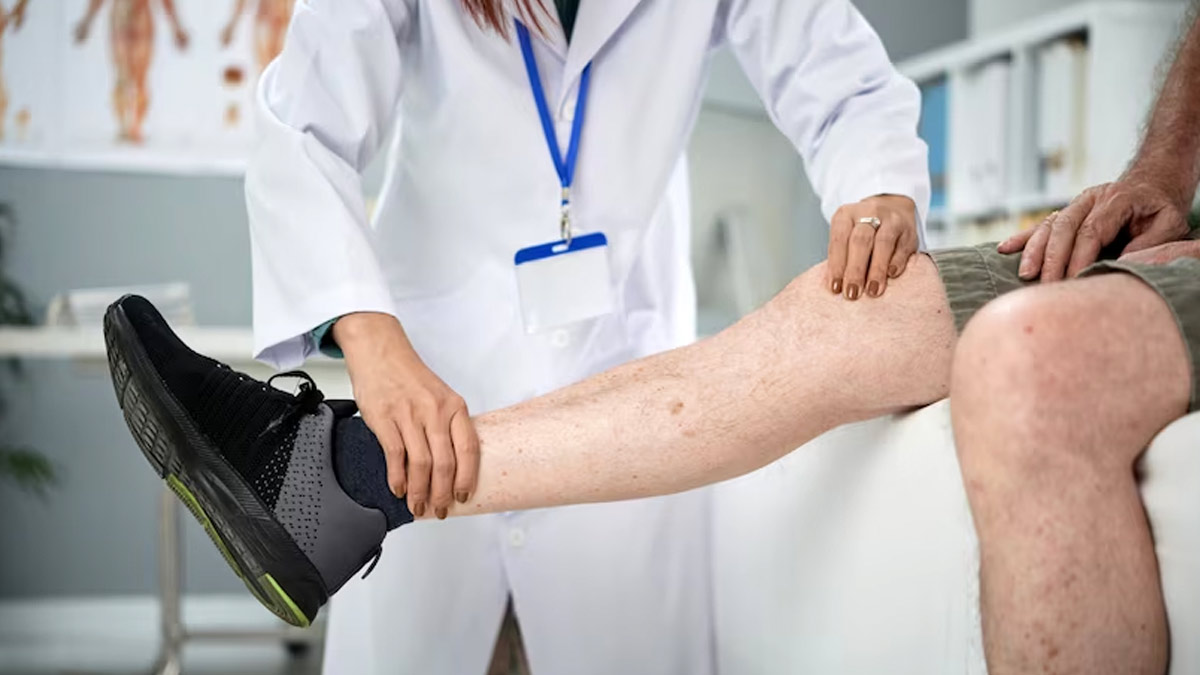
Leg or calf cramps can be extremely discomforting. It can make you uneasy and affect the quality of your life. Dr Nikhil Kulkarni, Consultant-Internal Medicine, SL. Raheja Hospital, Mahim - A Fortis Associate, describes calf cramps as involuntary muscle contractions that can be painful and last from a few seconds to minutes. According to him, with growing age, the risk of having night leg/calf cramps increases. Hence, it is important to know its causes and get timely treatments.
Table of Content:-
Also Read: What Your Bowel Movement Reveals About Your Gut Health
What Calf Cramps At Night Feel Like

A calf cramp can feel like a sudden and involuntary tightening or contraction of the muscles in the calf area. It can cause a sharp and intense pain in the affected muscle and the affected area may feel tightened or hardened. In addition, it can temporarily limit the ability to move or stretch the affected leg. As discussed, calf cramps can last anywhere from a few seconds to a few minutes, although the intensity of the pain may gradually subside over that time period.
According to Cleveland Clinic, the older you are, the more likely you are to have leg cramps. This is because the tendons, which are the tissues that connect your muscles to the bones, naturally shorten. As per research, pregnant Indian women experience the most third-trimester muscle cramps, especially in the calf (64.6%).
Common Causes Of Calf Cramps

Calf cramps at night, also known as nocturnal leg cramps, are a common phenomenon that can be quite painful. While the exact cause may vary from person to person, here are some potential factors that contribute to calf cramps at night:
- Having a sedentary lifestyle where a person sits for an extended period
- Overuse of leg muscles
- Standing or working on concrete floors
- Poor posture
- Kidney failure, diabetic nerve damage, mineral deficits, and issues with blood flow
- Pregnancy and old age
- Drugs, medicines used to treat blood pressure problems and high cholesterol, and birth control pills
Also Read: How Menstrual Symptoms Change In Your 20s, 30s, And 40s
Nerve Compressions And Leg Cramps

Nerves in the lower leg, such as the sciatic nerve or nerves affected by conditions like spinal stenosis, can become compressed or irritated, leading to cramping sensations. Conditions like nerve entrapment or peripheral neuropathy can contribute to leg cramping.
In certain cases, a condition called Peripheral Artery Disease (PAD), which is characterised by the narrowing or blockage of the arteries that supply blood to the limbs, can affect the legs, according to Mayo Clinic. While calf cramps at night can occur in individuals with PAD, it is essential to note that not all cases of calf cramps at night are due to PAD.
How To Prevent Calf Cramps
To help prevent or alleviate calf cramps at night, you can indulge in the following measures:
- Stay well-hydrated throughout the day and ensure adequate fluid intake
- Stretch and warm up calf muscles before bedtime
- Regularly engage in gentle exercises that promote circulation and flexibility
- Maintain a balanced diet to ensure sufficient intake of minerals and electrolytes
- Avoid excessive caffeine or alcohol consumption, as they can contribute to dehydration
If cramps persist or affect the quality of your life, ensure that you consult a healthcare professional.
Also watch this video
How we keep this article up to date:
We work with experts and keep a close eye on the latest in health and wellness. Whenever there is a new research or helpful information, we update our articles with accurate and useful advice.
Current Version